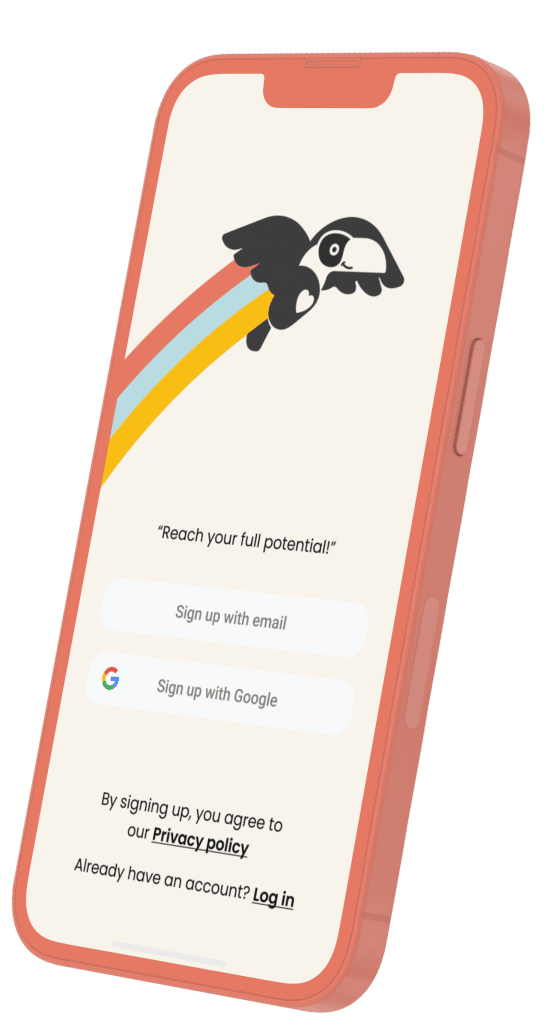You might be asking yourself which questions an employer will ask you in an interview. There is indeed no way of knowing what topics will be covered, but there are several types of popular interview questions you can expect to be asked and prepared for. These can be hard interview questions if you are not properly prepared.
3 steps to prepare for
- Make sure to understand the intention behind each question
- Draw a great answer for each question by presenting your achievements in numbers and use the Star Method to answer behavioral questions
- Prepare for Virtual Assessment Centers
I suggest you write down a few bullet points with your answers. There is no need to memorize the answers but instead, focus on practicing them out loud. The more prepared you are for an interview, the more confident and less nervous you will be, which will make you stand out from all of the other applicants.
The 13 most common interview questions
Could you tell me about your experience?
Take time to answer this question. Important is to show if you have the required skills to do the job! Instead of focusing on every single detail of what your last job was all about, focus on the strengths and qualities you possess that the company is looking for (you can discover these strengths or qualities in the job description or on their website.)
Why did you decide to apply for this job?
This is another really common question. First, they want to make sure you know what the job is all about. And second, they want to see if you’ve thought about your own career and want to know which challenges you are looking for. Make sure to thoroughly research their website the tasks and responsibilities of the position and show your enthusiasm for the role!
Why do you want to work here?
The hiring manager is trying to get your motivation. They want you to become an integral part of the company, grow within the team and become part of the family.
To prepare for this question:
- Research the company website.
Recruiters want to know how much you researched the company. An enthusiastic candidate is not only familiar with the company, but they’ve explored the company’s background, products, history, client base, and mission and values statements as well.
- Identify your core values.
Identify your core values and understand the company culture. It is very important to understand if you would be a cultural fit and if the values and mission of the company are aligned with yours.
If you’re not sure if you’d be a good cultural fit for the startup world, check the differences between working in a startup and a corporate environment here.
- Write a cover letter
Write a tailored cover letter for the job. This will make you stand out from the crowd! We included our top 10 tips for writing a cover letter as well as already prepared sentences for you to have the best and most unique cover letter.
Why should we hire you?
When you have to answer such a question, the biggest obstacle is that you don’t know who you are competing with. The goal is not to explain how qualified you are – that’s why they invited you for the interview after all – but to really stand out.
How to prepare is quite similar to the way you should prepare for all the questions: read the job description carefully and tie your strengths to it, while also quantifying them and your achievements. One outstanding point is that you should not just research the company itself but try to get a grasp of their environment and bring an example that can relate to that environment.
For instance: if you know from the company’s Linkedin profile, that they are just about to launch a new product, explain how you already dealt with such a stressful situation and what were the key learnings you would bring into the company.
If you want to learn even more, check out our examples for possible answers to “Why should we hire you?”.
Why Do You Want to Leave (or Have Left) Your Job?
This question can make a lot of job applicants very nervous. But don’t be! If you were fired from your last job, you’re going to have to honestly explain the reason and show what you learned from the experience.
If you left voluntarily be sure to explain why. For example, you are looking forward to having more flexibility, influence, and responsibilities, which your previous company just could not offer.
Be honest, direct, and stick to the facts. Even if you quit under challenging circumstances, keep it positive and remember to express your gratitude for your previous employer. Never talk bad about your previous employer! That is a strong indication that you might talk badly about your new job if you left.
How do you handle stress?
What the recruiter wants to know is your ability to solve problems. Spend some time thinking about how you approach to stress and provide a concrete example from your past experience that shows your ability to positively respond to these situations.
How do you handle conflict at work?
Employers ask this question to know if you productively approach conflict and to know how you interact with your colleagues and stakeholders that have different opinions than yours.
A good answer will discuss a time you faced a conflict and maintained the patience to resolve it. It’s important to clearly explain what you have learned and how you grew professionally and personally after this experience.
What is your greatest accomplishment?
When interviewers ask about your greatest accomplishment, they want to gain insight into your proven work and your achievements. They are interested to learn what you view as an accomplishment, which accomplishments do you select as your greatest, and which projects you have completed that they can expect from you.
Try to show some genuine passion when answering this question and focus on an accomplishment that is in line with “what the company values the most”.
Highlights skills that would be useful in the job you’re interviewing for. For example, if you were relating an accomplishment that is centered around “leadership”, you could finish your answer with something like “which is why I’m so excited for the possibility of building a team from scratch and collaboratively working on many exciting projects.”
What are your greatest strengths?
The most important thing when answering this question is that you should not over-flatter nor subjectively throw strengths at the interviewer. You should practice 2-3 key strengths that would make you stick out, and learn how to present them. We provided a list of strengths and example answers here. When presenting them, take caution to quantify your answers, that way they will sound objective.
What are your greatest weaknesses?
Now this is a tough one, because the answer requires more than a simple preparation – you really need to be aware of your weaknesses. This might be hard for some people, they don’t want to admit their weaknesses or they truly don’t know what their work-related weaknesses are. To overcome these, ask a trusted colleague to give you honest feedback, and be grateful for it, regardless how hurtful the feedback might feel at first. This is also a great chance to learn and grow, after all.
After that, all you have to do is choose 2-3 suitable weaknesses and learn how to present them. Always pair how you try to improve, which will show dedication to the future employer.
Do you prefer working alone or in a group?
There is no correct or incorrect answer to this question. Employers want to know your preferred way of working. They will likely want to hire a candidate whose personality is more suited to working on their own or in a team or a mix of the two, depending on the job requirements.
Below are some great tips on how to prepare for this question:
- Explain why you prefer a way of working as opposed to another
Provide your preference and explain why. Be honest when answering this question. For example, if you find that working independently keeps you more productive and focused, explain this to the interviewer. If you find that working as part of a team motivates you and encourages you to overcome challenges, tell the interviewer.
- Discuss your flexibility with both work environments
Showing you have a preference to work alone or in a team, does not mean you can not be flexible. Another key element is to provide an example of how you can effectively work in both work environments. For instance, give examples of past experiences where you split your time between the group and independent work.
12. What is Your Biggest Failure?
Nobody is perfect and interviewers know it! What they want to know with this question is whether you are self-aware enough to acknowledge the mistakes you have made and if you are willing to learn from them.
We share 3 steps on how to prepare for this question:
- Choose one failure
Look for a story from your experience in the past that shows only one thing that went wrong. This will help keep the story short. Explain what you have learned and what you would do differently next time.
- Explain how you managed the failure
Focus on talking about how you managed the failure. You can explain what made the situation challenging and what you tried to fix.
- Show what you learned
Talk about what you believe went wrong, what you would have done differently, and what changes you made moving forward to fix the situation and avoid this from happening again.
13. What Are Your Salary Expectations?
The reason why a recruiter asks this question is that they usually have a budget and want to make sure that your compensation expectation is aligned with what the company can offer. If your salary expectations are too high, you might not be considered for another round of interviews as the company might not have enough resources to hire you. That’s why it’s so crucial that you do your research before. Negotiation should stand on valid points, and your salary expectation should be reasonable. When you share your salary expectations, you should briefly explain the amount. We also included 13 tips for the best way to negotiate your salary.
Also, there are many online salary calculators that can provide you with a reasonable range based on your job title, location, years of experience, skills, languages (ex: gehalt.de), as well as the location and the living standards of different European cities, can be different.
Summary
It’s like preparing for a school test. The best way to succeed in your interview is to study and practice. Research the company and the job and practice out loud your points until you feel confident about your answers. The more you prepare, the more likely you are to stick out from other candidates. Write down at least 3 examples of successes and challenges from your previous company and try to make the conversation as relaxed, conversational, and positive as possible.
What happens when you ace your interview? Read more about what to do when getting a startup job offer!


